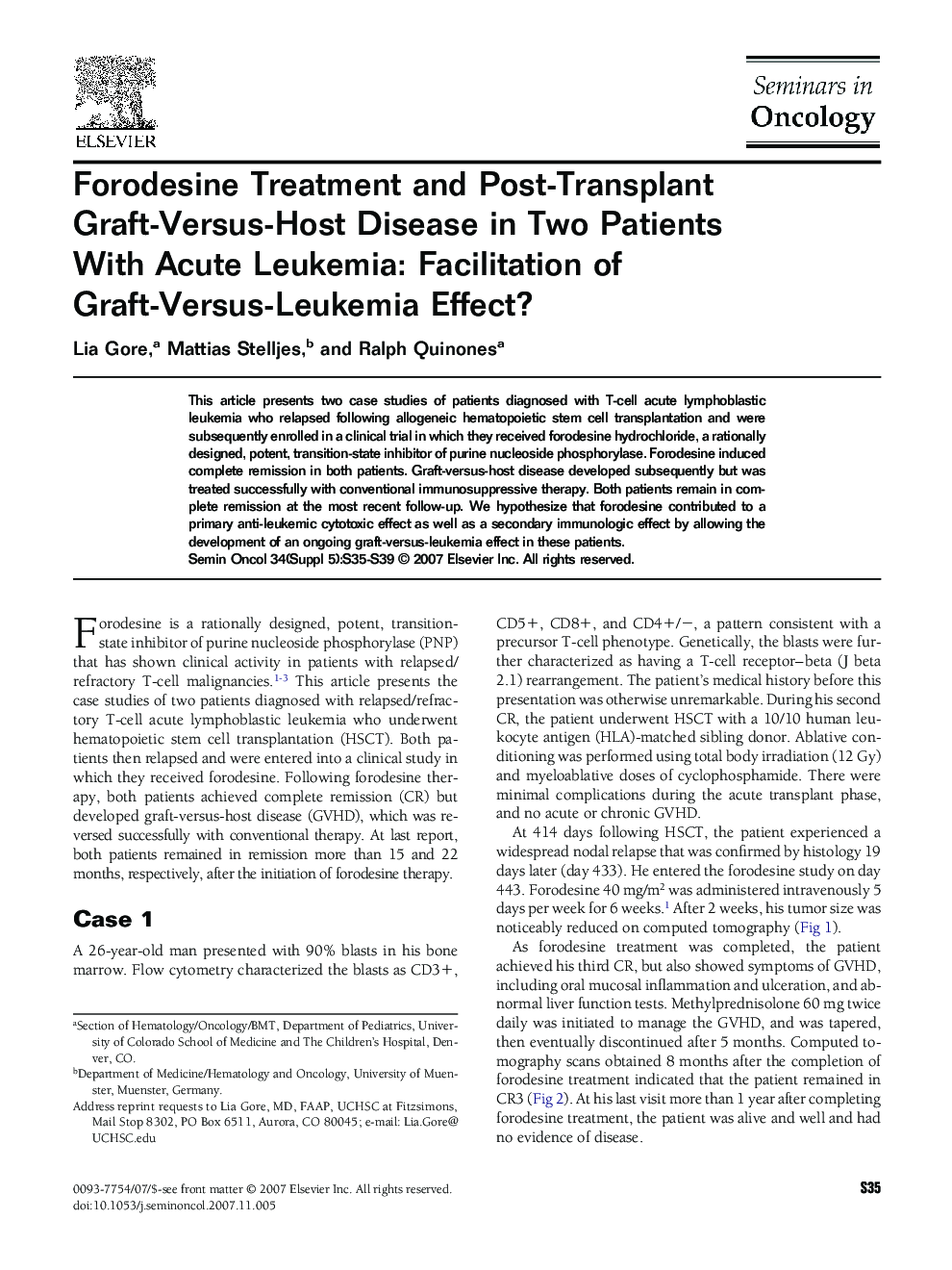| Article ID | Journal | Published Year | Pages | File Type |
|---|---|---|---|---|
| 2163087 | Seminars in Oncology | 2007 | 5 Pages |
Abstract
This article presents two case studies of patients diagnosed with T-cell acute lymphoblastic leukemia who relapsed following allogeneic hematopoietic stem cell transplantation and were subsequently enrolled in a clinical trial in which they received forodesine hydrochloride, a rationally designed, potent, transition-state inhibitor of purine nucleoside phosphorylase. Forodesine induced complete remission in both patients. Graft-versus-host disease developed subsequently but was treated successfully with conventional immunosuppressive therapy. Both patients remain in complete remission at the most recent follow-up. We hypothesize that forodesine contributed to a primary anti-leukemic cytotoxic effect as well as a secondary immunologic effect by allowing the development of an ongoing graft-versus-leukemia effect in these patients.
Related Topics
Life Sciences
Biochemistry, Genetics and Molecular Biology
Cancer Research
Authors
Lia Gore, Mattias Stelljes, Ralph Quinones,
